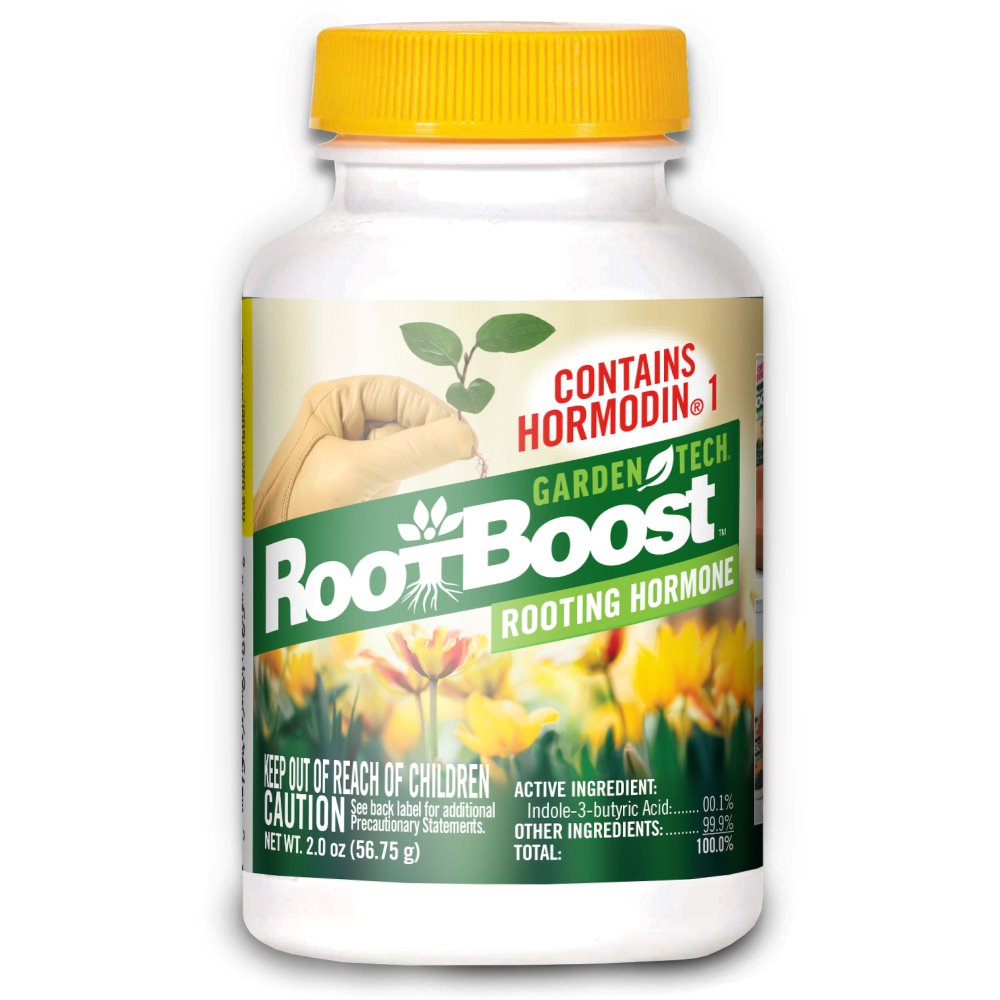
RootBoost™ Rooting Hormone
- Perfect for propagation of indoor and outdoor plants
- Encourages faster rooting from cuttings
- Contains Hormodin 1 - same formula used by professionals
- Ideal for container gardens and garden ornamentals
- As simple as cut, dip, and plant!
- Provides enough rooting hormone for hundreds of cuttings
Transform cuttings into strong, healthy plants.
Starting new plants with cuttings from your favorite indoor plants, outdoor plants, or container garden is as simple as snip, dip, and plant. With RootBoost Rooting Hormone, you can propagate new plants with ease, using the same active ingredient trusted by plant propagation professionals. RootBoost stimulates root development on cuttings, encouraging uniform root growth for well-rooted new plants—whether you're expanding your indoor greenery or enhancing your outdoor landscape.
Sizes
- Use only on ornamental cuttings. Established plants and their roots are not affected.
- Use a sharp, sterilized knife or pruner to take 4- to 6-inch cuttings from soft stems or new, immature woody stems. Work during the active growing season for best results on most plant types.
- Keep cuttings protected and moist, and remove all but the top set of leaves.
- Pour a small amount of the rooting hormone into a shallow dish. Do not mix with water.
- Moisten the end of a cutting slightly, and then dip it into the dish, thoroughly covering the tip and at least one exposed leaf node. Tap to remove any excess.
- Insert cutting at a slight angle into a tray of rooting medium, such as a light potting mix, perlite, sand or a commercial rooting mix designed especially for cuttings.
- Discard any rooting hormone remaining in the shallow dish when finished. Do not return it to the original container or you risk contaminating the rest of the product.
- Place the rooting tray inside a plastic bag or cover it with plastic to form a mini-greenhouse, and then place in indirect light.
- Mist and water, as needed, to keep cuttings hydrated and rooting medium moist while roots grow.
- Transplant rooted cuttings once roots establish well and new growth appears.
- Read the product label and follow application instructions thoroughly.
- African Violets
- Carnations
- Fuchsia
- Geraniums
- Jasmine
- Willow
- Viburnum
- Roses
- Begonias
- Gardenias
- Coleus
- Philodendrons
- Bougainvillea
- Poinsettias
- Chrysanthemums
- Euonymous
- Hydrangeas
- Phlox
- Raspberry
- Azaleas
- Rhododendrons
- Magnolias
- Photinias
- Cacti
- Ice Plant
- And many more listed on the label
How long will it take my cuttings to root?
Rooting can take 3–5 weeks, depending on the plant species.
Can I dip the cutting directly into the bottle of RootBoost™?
When taking cuttings, you should pour out a small amount onto a paper plate or something that you will throw away when you’re done, then dip the cutting into the RootBoost™ on the plate. This will eliminate the possibility of contaminating the RootBoost™ inside the container.
The directions state to use a rooting medium. What is rooting medium?
Rooting medium provides physical support, water and oxygen. Many types of rooting medium is available. The most common are sand, perlite, peat, vermiculite or a mixture of these four. Potting soil and a commercial soilless mix are also available at most retailers. Water is not recommended to use as a rooting medium. The medium should be free of weeds and disease, and moist before inserting the cuttings.




